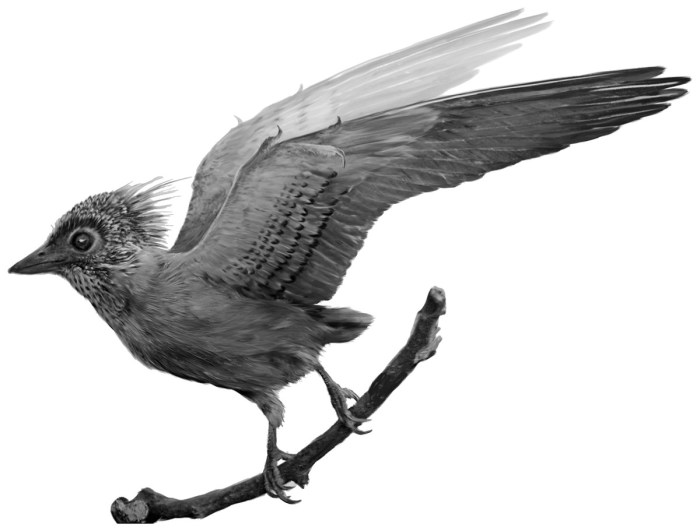Palaeontology and Open Science roundup: November, 2018
Welcome to your usual roundup of interesting stuff that happened in the last month from the worlds of Open Science and Palaeontology! Enjoy, and let me know if I’ve missed anything out. Previous time.
Palaeontology News
- Nikolov: Osteohistology of the hadrosauroid (Dinosauria: Ornithopoda) from Labirinta cave, Bulgaria: An example of insular dwarfism or simply young giant?
- Lowery and Fraass: Explanation for Delayed Recovery of Species Diversity Following the End Cretaceous Mass Extinction.
- Roopnarine et al: Ecological persistence, incumbency and reorganization in the Karoo Basin during the Permian-Triassic transition.
- Li et al: Elaborate plumage patterning in a Cretaceous bird.

- Norden et al: Multifaceted disparity approach reveals dinosaur herbivory flourished before the end-Cretaceous mass extinction.
- Atterholt et al: The most complete enantiornithine from North America and a phylogenetic analysis of the Avisauridae.
- Müller et al: An exceptionally preserved association of complete dinosaur skeletons reveals the oldest long-necked sauropodomorphs.
- Bardua et al: Phylogeny, ecology and deep time: 2D outline analysis of anuran skulls from the Early Cretaceous to the Recent.
Open Science news
- The Gates Foundation and the Wellcome Trust have both signed up to Plan S!
- The European Universities Association have followed up with a second complaint to the European Commission about issues within the scholarly publishing sector. Full report here.
- Results are in from a big replicability study in Psychology.
- AI has finally caught up with peer review!
- The European Open Science Cloud appears to have been launched, finally!
- The implementation guide for Plan S has now also been launched, and feedback is open! There is a public annotation process happening too here.
- Ross-Hellauer et al: Are funder open access platforms a good idea?#
- There’s a new open letter circulating in support of open access funder mandates, started by Mike Eisen and Lenny Teytelman.
- Ten simple rules for scientific fraud and misconduct. Well worth a read.
Stuff I’ve done
- An audio accompaniment to Module 5 of the Open Science MOOC is now available online!
- Also available as a video on YouTube.
- Also with a new video on how to set up your first GitHub repository.
- A report I’ve been working on with Education International about the threat of Elsevier to democratising knowledge is now available!
- Here’s a blog post on it too.
- And a shorter, 4-page advocacy document version of the report.
- And another blog post on it from Education International. Whew!
- And another longer blog post about this via NORRAG.
- Pretty chuffed to have been awarded the Jean-Claude Guédon 2018 prize for work on the future of scholarly publishing! Special thanks to all the people I have collaborated with, or who have provided support, these last few years 🙂
- Our complaint to the EC competition authority about RELX and the wider publishing industry keeps getting attention:
- In French
- In ScienceBusiness
- In TechDirt
- In TorrentFreak
- “Academic publisher Elsevier has repeatedly made the news for its battle with Sci-Hub, the “Pirate Bay” of science. However, while Elsevier is using copyrights to protect its business, academic-insiders accuse the publisher of “anti-competitive” actions.”
- A little article for BBC Wildlife Magazine on how dinosaurs got so big!
- I was also on a Swedish podcast talking about Open Science, from within the Berlin Museum fur Naturkunde!
- An article cross-posted to the LSE Impact Blog on whether we need an Open Science Coalition of sorts.
- Delivered a little webinar introducing the Open Science MOOC to the e-learning team at Denmark Tech University. The recording for this is now online.
- Gave a keynote presentation in Tromso, Norway, at the Munin Conference on ‘Preprints, Publishing, and Power‘. Slides are online via Figshare, and the talk has been recorded and is available online too (Nov 29th, 9AM slot).
One thought on “Palaeontology and Open Science roundup: November, 2018”